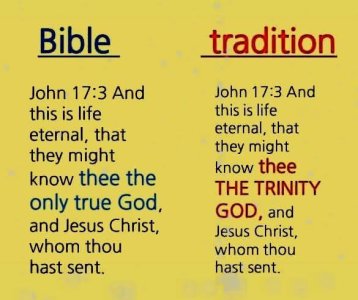synergy
Active Member
I did and it's true that the Greek language does have indefinite articles that can be translated to "a" or "an". For you to deny that is to deny reality and to expose your dirt poor knowledge of the Greek language. Here are some examples of the Indefinite Articles in the Greek language:You best look it up.
Singular Indefinite Articles, all of them translate to “one” or "a":
– Masculine: ένας
– Feminine: μία
– Neuter: ένα
Plural Indefinite Articles, all of them translate to “several”
– Masculine: μερικοί
– Feminine: μερικές
– Neuter: μερικά
Therefore, all JWs have now been awarded the Butcher of the Year Award for their butchering of John 1:1.

